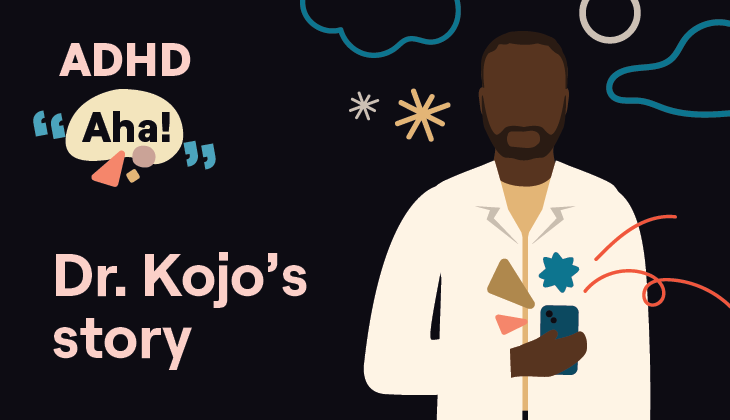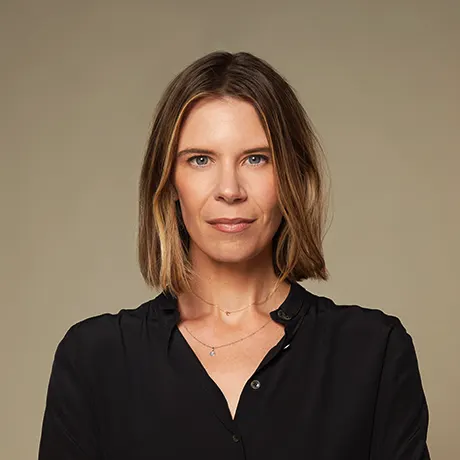Stay in the know
All our latest podcasts delivered right to your inbox.
Dr. Kojo Sarfo played life on hard mode with his ADHD before getting diagnosed as an adult. ADHD treatment and strategies helped Dr. Kojo cope with his daydreaming and procrastination. But he wanted to do more. Today, he's a nurse practitioner who connects with millions of followers on TikTok and other social media, fighting the shame around ADHD and mental health, and having conversations that build people up.
Dr. Kojo had an unexpected ADHD “aha” moment. As a kid, he watched Atlanta Braves baseball player Adam LaRoche make an error on a routine ground ball. He then learned that LaRoche had ADHD. Join a heartfelt conversation between host Laura Key and Dr. Kojo as they unearth how daydreaming is brainstorming in disguise — and why seeking treatment is the road to self-compassion.
Related resources
Episode transcript
Dr. Kojo: I was talking to a good friend of mine who's a medical student. And he was like, "Has anybody ever told you that you have ADHD?" I'm like, "I know I have it," but I didn't think to myself, you can have ADHD and then go get treatment. I knew what the treatment would be, but I've been maintaining and I'm successful, so I don't really need that help. I just kind of have to get it together, but I didn't know how. And he was like, "You might want to go and, you know, see if you can find a doctor." And he said that they gave him medication for it. And he, when he was describing his before and after, that was probably what sent me over the edge and said, "All right, I'm going to take the plunge and look into it."
Laura: From the Understood Podcast Network, this is "ADHD Aha!" — a podcast where people share the moment when it finally clicked that they or someone they know has ADHD. My name is Laura Key. I'm the editorial director here at Understood. And as someone who's had my own ADHD "aha" moment, I'll be your host.
I am so excited to be here today with Dr. Kojo Sarfo. Kojo is a mental health nurse practitioner, a psychotherapist, and a content creator with over 2 million followers on his social media channels, like TikTok, Instagram, Facebook, YouTube, Twitter, Twitch, and Triller. He's also the author of the book called "You Already Won," in which he talks about ADHD in a beautiful way. Dr. Kojo, welcome. Thank you for being here today.
Dr. Kojo: Thank you so much for having me. I appreciate it.
Laura: Kojo, I'm so excited to talk to you today. There's so many things that I want to talk to you about. But the first thing I want to talk about — mostly because I'm just a big fan of baseball, but also because I know there's a baseball story that is very meaningful to you — is, I want to talk about baseball. Can you tell me what happened in seventh grade with baseball?
Dr. Kojo: So I was watching an Atlanta Braves game, and shout-out to the Braves — they just won the World Series, you know, that was exciting for me to witness that. So I was watching a game between the Atlanta Braves and the Washington Nationals, and I'll never forget, the batter on the Nationals, name was Nick Johnson, and he hit a ground ball to first base, and the first baseman, Adam LaRoche, you know, it was a routine play. He should have just scooped up the ball and just jogged over to first base. If he had walked to first base, he would've got there before the base runner got there. But I was watching the game live, and he just kind of froze as if he was paralyzed. And he just kind of lackadaisically, like, went over to the first base bag. And by the time he got there, the base runner had beat him to the bag, and me and the millions of people who were watching were shocked. We lost the game, the Braves lost the game, and I was upset. And after the game, Adam LaRoche, the first baseman for the Braves, came out and said that he had ADHD; it was something that he had struggled with.
And, you know, I went from being upset that he didn't make the play to connecting with him on that level. And that was like, kind of the confirmation, the big epiphany, the moment where I realized that I had that same thing too. 'Cause I always suspected it, since second grade, third grade, but when I saw his story and then I matched it to mine, it started to make sense for the first time.
Laura: So brutal for Adam LaRoche. I feel for him on that play. That must have been pretty devastating to go through that. But I'm glad that it led to this "aha" moment that you had. Did you play baseball growing up?
Dr. Kojo: I never played baseball. I had a good friend of mine who was on a team in high school and he took me out for batting practice, and I was awful at it. So I'm just a fan.
Laura: OK. Got it. I have a hot take that I think that baseball might be one of the hardest sports for people with ADHD to play because there's so much downtime.
Dr. Kojo: Oh, wow. OK, wow, I never thought about it.
Laura: Yeah, unless you're, like, the pitcher or the catcher and you're, like, constantly in the action. If you're, like, prone to daydreaming or whatever, it must be, uh, I feel like it would be a tricky sport for someone with ADHD to play.
Dr. Kojo: I completely agree. I agree.
Laura: Well, back to you, though. OK, so this was in seventh grade that this happened. What kinds of things were you noticing in yourself that made you relate to what Adam LaRoche went through?
Dr. Kojo: So I would, like any, you know, child during those formative years, you kind of compare yourself to your peers. And you'll notice that sometimes people will finish their assignments before you, and sometimes things will take you longer to do, or, you know, you'll be spaced out and then, you know, you would get your report card. And then the teacher would say that "he's daydreaming, he's not paying attention." And I thought that everybody sort of did those things. You know, I thought everybody couldn't focus to some degree. So I didn't know that it was like an actual thing. I just kind of attributed it to the fact that we moved from Norway to Nashville, Tennessee, when I was, uh, 5½, 6. So I thought it was because we had shifted countries and I was just adjusting to a new country. But I kind of had that issue in second grade, third grade, fourth grade, like, it never went away. So obviously I adapted over time, but I just realized that it just took a little bit more out of me to do what other kids could do in like half the time.
You know, the part that would be frustrating, I would have to have these parent-teacher conferences where the teachers would say, "He's such a bright student. If only he paid attention, he could do better." So I used to dread that because then the teachers would talk to my parents and then they'd say, "Oh, if he would only stay awake or if he'd only pay attention, he'd be a better student, but he, he's a bright kid."
So outside of that, you know, I found ways to adapt. Like I would, you know, be the class clown and I would goof off. I found other ways to kind of build my self-esteem up, but the parent-teacher conferences were very frustrating.
Laura: How would you clown around, what kinds of things would you do to distract?
Dr. Kojo: Being an immigrant child in a different country, there's not much you can connect to. So, obviously, I came to Nashville, the Titans went to the Super Bowl, so everybody was talking about football. So I was making football jokes and, you know, I would try and see what the girls would like to laugh about. And I would just copy whoever was the loudest kid in the class. And then I would make my own jokes. And then, you know, after a while, some of them would land, and then that would make you feel accepted.
Anything that I could do to kind of, you know, bring attention to myself, it kind of distracted me and the teachers and, you know, my classmates from the fact that, like, I'd be a little bit behind with the schoolwork. So it helped to take the emphasis away from the struggles every day.
Laura: The teachers noticing your grades, talking to your parents. Did you say you moved from Norway? Is that where your family's from?
Dr. Kojo: No, we're from Ghana, West Africa.
Laura: Got it. OK. So, West African family. The teacher is expressing some concerns. How did your parents react?
Dr. Kojo: It's funny because I don't even think they realized how much I struggled, and they're learning now. They moved from, you know, West Africa to Europe, and then six years later, they moved from Europe to Nashville, Tennessee. So they had to endure so much. They worked as janitors so that they could put themselves through school.
So we came from that mentality where — and you see it in a lot of foreign families — where it's no excuses. Like, you have to be tenacious, you have to work hard, nobody's coming to save you — that type of thing. So for me to complain that I can't focus is kind of like a silly thing to a family that's working their butts off to try and put food on the table.
Laura: Yeah. Struggling with focus on the hierarchy of needs can seem like a lower-level thing, but cumulatively, over time, the pain that it can cause, the difficulty that it can cause when you are continuously struggling. I mean, you, clearly extremely intelligent, but you know, it doesn't, maybe it's not showing in the grades or — that's a painful thing, right? Would they have ever considered taking you to get evaluated for ADHD at that time?
Dr. Kojo: I don't think they would've. It was more so my mom saying, "We'll pray for you. None of my children will have this type of thing." I would've had to really kind of struggle, maybe fail the grade and be on the verge of failing another grade. I would've had to have had an intervention from teachers and counselors and the principals who could maybe say, "Hey, like, I know some kids have this." And even that, that would have given me like a, maybe like a 30 percent chance.
Laura: OK, so an evaluation — probably not going to happen for you as a seventh grader. At that point, you have your Adam LaRoche moment. And then what happens? You carry this with you, right? Knowing that something's off and maybe it's a possibility. What did you do with that from that time to the time that you eventually got diagnosed? Which we'll talk about, when you were 25.
Dr. Kojo: So I think when you know that something's not an option, or at least for me, you don't worry about it too much. You know, like I completely wrote off the option of getting evaluated. So I put all my energy into doing my best to compensate for what was happening. You know, high school, I really struggled. High school was brutal. Anytime it was, like, time for midterms or finals, it was the worst, 'cause I was in the IB program, actually. So that's like a super magnetprogram.
Laura: That's the International Baccalaureate — is that what that is?
Dr. Kojo: Right. It's very challenging. You know, so I got into the program on my own without the extra support, but a program like that is suited for people who have support, you know? So I just kind of, like, did my best. And I used to say that I was like at the bottom of the totem pole in the IB program. So nobody was like, worried about me, like, "Oh, he's a smart kid." But, like, I had multiple F's.
Laura: What did you do to cope?
Dr. Kojo: So, uh, I feel like I've always been solution-based. The one good thing that I will say that my parents did, especially my mom, 'cause she didn't understand ADHD or mental health, but she would always, like, say things about us, like, even when I was struggling, she would say, "You are going to be great. You are going to change things in this country." And I'm like, "Yeah, whatever." But she always spoke positivity into us. So, like, she kind of got me to the point where I would believe even when I was failing, and she was very good at not accepting negative feedback.
I remember I had a teacher who said I should work at a gas station instead of going to college. And my mom went up to this school and she was upset, and she told them, "You can't say that to a child," in front of, like, all the other classmates. So she was, like, a big proponent of speaking life into people and positivity.
And that's something that was very helpful, because you would naturally feel hopeless when your grades are so bad, but my mom, you know, in a way, she made it feel like things are going to be OK.
Laura: I've got to get to the part of you being 25, and you're — OK, let me see if I've got this right — you're a nurse practitioner, you have a clothing line, and you are getting your doctorate to become a psychotherapist. Is that right?
Dr. Kojo: Correct.
Laura: OK. What happened?
Dr. Kojo: It was funny because I remember I failed a test, and I think I got, maybe it was like a 70 or so. In grad school, you have to have at least an 80. I failed that test. And, like, I knew exactly why. I put things off to the last second and I was late at work, so I'd have to stay over late, and the information was difficult to comprehend. So I'd have to go spend time in the professor's office to learn it. The girl I was dating at the time, like, I remember, I would say, "Let's go out bowling, you know, on Thursday night," and we'd get to Thursday night, I wouldn't have even started the thing that I needed to work on. Like, I had all week to do it. I hadn't even, like, opened it up. And, like, she'd ask, like, "Are you making progress?" I'm like, "Yeah, you know, I'm, like, 60 percent done." I hadn't even started it, you know? So we get to, like, Thursday night and I would have to cancel. 'Cause I'm like, you know what? I can't go out and be present, like, I'm behind. And that'll lead to an argument. And then I had that stress. I had stress coming from everywhere, and I was talking to a good friend of mine who's a medical student. I described what I was, you know, going through. And he was, like, "Has anybody ever told you that you have ADHD?"
I'm like, "I know I have it," but I didn't think to myself, "You can have ADHD and then go get treatment." I knew what the treatment would be, but I was like, "I'm successful, so I don't really need that help. I just kind of have to get it together." But I didn't know how. And he was like, "Oh, if you're open to it, you know, you might want to go and see if you can find a doctor."
And he said that he went back to his doctor in Atlanta. They gave him medication for it. And he, when he was describing his before and after, that was probably what sent me over the edge and said, "All right, I'm going to take the plunge and look into it." That was actually like a pivotal moment in my life. I don't think I've ever told him how much I appreciated that.
I probably have to call him after this, 'cause as I'm thinking about it, that meant a lot to me because it gave me the confidence. And I booked an appointment with my doctor. And then, you know, the moment I took the medication for the first time, like, I went to my girlfriend's house — and normally I was late to whatever we agreed to do, so I would joke to play it off. But I went to her apartment. I set up my desk, opened the laptop, and I didn't watch any football highlights. I just started to do my work. Then I got my work done. And then I had, like, time left. That's when I realized that I had been playing life on, like, hard mode, you know, for, like, 25 years. And then I was like, "Oh, this is something that people don't talk about, and it's hiding in plain sight, but there's relief." So that was a huge moment for me.
Laura: "Hiding in plain sight" is such a good phrase to describe it. I got diagnosed when I was 30, Kojo. And then when I started to get treatment for it, I was like, "Oh, this is what it's like to feel quote-unquote normal."
Dr. Kojo: Right. It's mind-blowing.
Laura: It is mind-blowing. Yeah. I mean, it's life-changing. It's, it just changes your whole perspective and also helps you be a little kinder to yourself, which is so important.
Dr. Kojo: And I would say the only other thing that was maybe as life-changing was when I got glasses in the fifth grade. Putting on glasses, and I looked down and I could see the blades of grass. And I was like, "Oh, my goodness. People can see, like, individual blades?" I thought it was just, like, green. Like, it changed my life. And medications did, like, a very similar thing.
Laura: So in away, I'm kind of glad, Kojo, that you hit that wall during your doctorate program. 'Cause you had managed to, like, work through it and compensate for so long.
Dr. Kojo: I'm grateful that things happened the way they happened. And sometimes people who are diagnosed late in life, you might possibly have some resentment toward maybe your parents or your teachers. And you're, like, "Oh, if I would've got the help beforehand, would I have tapped into like a higher potential, a higher version of myself?" But for me, I'm just grateful that I got the help when I got it. And just going the way I did, it kind of forced me to lean into like how to cope. Like I could figure out coping strategies 'cause I had so many of them, and, like, I knew to do that. I knew to talk nicely to myself. I knew to believe in myself. I knew to allow myself to have more time to do things. I would do that naturally. I would set fake deadlines. I would, like, if it's 1:00, I'd make my car say, like, 1:17, because I didn't want it to be like 15 minutes ahead. So I'd, like, just tweak it a little bit. So it'd be like 17 minutes ahead. So that would help me get to work on time 'cause I didn't want to lose my job. Because if I lost my job, that would be more financial stress on top of whatever I was going through. So I found different ways to cope. So it was, like, once I got the medications, I was, like, "OK, wow. So, like, now everything is coming together." And I really felt like I could do anything that I wanted to do.
Laura: I can't believe you said "fake deadlines," 'cause I've used that phrase before. That was, like, my number one coping mechanism throughout life was the fake deadline strategy, and I've never heard anyone else use that exact phrase.
Dr. Kojo: I don't know if I heard it from somebody, but I've been doing it for the longest, it's just my way of —
Laura: It was me. You heard it from me, Kojo.
Dr. Kojo: I may have heard it from you, you know? Great minds think alike.
Laura: You do so much. You are a nurse practitioner. You are a psychotherapist. You are a content creator with millions of followers. You published a book, you have a podcast. At what point did you feel like you were maybe becoming a bit of a, like, an overachiever is what I want to say, and does that relate at all to your ADHD?
Dr. Kojo: I think it does. And when you struggle to find something that you're authentically good at, when you find the first thing that you notice that you do either as good as other people or maybe a little bit better, you latch on to that. And that's what I did because I was a poor high school student, and I remember my dad was like, "What are you going to do after high school?"I said, "I don't know," you know? And he said, "Try going into nursing school. You can be financially stable, and you can actually help people, 'cause you like to help people." So once I got to nursing school and I managed to graduate, and I got Most Outstanding Student, I realized that, OK, I'm good at interacting with people.
And I was never really good with the actual skills of nursing, which is funny because everybody was good at that part, but I wasn't really good with like putting in IVs and, like, I was horrible at that, but I was good at talking at people. So once I found my way, you know, working at the psych hospital, just by talking to the patients, I realized that, I think I'm better at this than the average person. And it's an addicting feeling, you know, because for so long when you've had to like bounce around from thing to thing to thing to thing, once something kind of clicks, like you run as fast as possible in that lane, and then you try your best to have other things just like that. And I feel like that's how I went from RN in the state hospital to where I am now, because as I tried different things, and as I realized that, "Oh, I think I'm good at this," or people enjoy me when I do a certain thing, you know, that's the validation that you never really had growing up. So you just keep doing all these things, and sometimes you do become a perfectionist. But as I've been educating, I've been also taking notes and figuring out how I can create an environment for myself. 'Cause you can get to this point, but without having that right environment, I would say it's almost impossible to sustain it, because as you know, with ADHD, it does affect all parts of your life.
Laura: So maybe less about perfectionism, more about tapping into your strengths, right? Yeah. Yeah. And by the way, I, I have so much love for nurses. I was raised by an RN — my mom. Nothing better than being raised by a nurse.
Dr. Kojo: Awesome. It's a great profession. It's changed my life. I'm so grateful to nursing.
Laura: You are a daydreamer, you said.
Dr. Kojo: Right.
Laura: It's interesting. I don't often hear about men and daydreaming. It usually gets that female connotation of, like, I've talked to people on the show even about being considered ditsy or a space cadet. It's actually, daydreaming is one of the reasons that a lot of women with ADHD go undiagnosed, right? So it's interesting to hear about a man struggling with daydreaming.
Dr. Kojo: And I still do it today, honestly, but today I understand that if I daydream all day, I'm going to miss things. I'm going to miss appointments. So, like, I'll have protected time for myself where, like, I might ask my assistant, "Do I have these next four hours off?" And I'll just really do nothing. Or I might, like, clean the house or I'll just think, and this is where I get a lot of good ideas from. So I think the daydreaming is not a bad thing, necessarily. But when you can't control it, or when you're daydreaming when you should be doing something else, it becomes maladaptive, and that's when it can really hurt you.
So I've figured out how to turn it into a strength, but every now and then I have to catch myself and put timers on because, like, since second grade I've always kind of, like, drifted. I might be mid-conversation, thinking about something else. My brain's all over the place, you know, I've just kind of learned to reel it in. But, yeah, I feel like I've been daydreaming since I was, you know, in second grade, but now I just don't get punished for it as much.
Laura: I'm so interested in this technique that seems to be working for you, like, you daydream, but almost with a purpose. Can you walk me through a specific example of that?Walk me through a daydream that has — is actually productive.
Dr. Kojo: OK, so let's say Thursdays and Fridays, I sit down with my publicist, and those are days where we like to just brainstorm about different ideas that we want to do. So before that meeting, I like to not have anything that I have to do before then.
And I'm even working to where I might just put like one whole day for nothing, nothing that I have to do. So I'll look at my schedule like I do every morning and it'll say nothing. So if I have a day like that, that's when I wake up, of course, get the dog out, do what I have to do. But I might daydream about whatever. I might watch a documentary on Netflix, and I'm thinking about a certain idea, and I'll write it down on a sticky note. I'll put it in the kitchen. I'll put it, you know, by the computer. But I might think of an idea, and sometimes with the best ideas you have to do it right then and there, but it's almost, like, liberating because I feel like my brain's default wants to go to that. So some of my best ideas come from just allowing myself to just think and just daydream and, and just kind of be out there naturally.
Laura: That's great. So you're not punishing yourself for this thing that was looked down upon maybe in your past. That's inspiring.
I want to talk about shame. Last time we talked, you told me that you experienced a lot of shame throughout your life. I think you even mentioned that you almost didn't talk about ADHD in your book. Can you tell me about that, the shame and the evolution of that feeling for you?
Dr. Kojo: Right. So, I mean, I think coming from an immigrant, you know, family, when you jump through so many hoops and, you know, you get to the United States, it's almost like you're trying to measure yourself up with your American peers. Not that you want to be better than them. I just want to be with them. I just want to be accepted. But once I could put a name to ADHD, I kind of started to look around and google things or try and see, like, who else has it, what do people do for it? Are they on meds for the rest of their lives? Like, I went through the whole rabbit hole.
I didn't see anybody talking about it back then, but it was a big part of my life. I had to put it in my book because it was a pivotal moment to go get treatment. I don't know if I would've gotten my doctorate without it. But there's shame that comes with having it and then thinking that nobody else has it, or thinking that if people have it, they're not as affected by it as you are. Like yours is just the worst. Like you have the worst case of ADHD in, like, the history of histories, you know? So I didn't see people talking about it.
So when I put it in my book, I was actually kind of scared to put it out there because the only thing that somebody could have said to me that would've made me feel like, a little, insecure would be, you know, somebody saying, "Oh, you only got through grad school and you only got your doctorate because you took Adderall in college," something like that. And when people say things about you that you don't believe, you're like, "OK, whatever, they're just some mess." But when you actually believe that thing, it hurts in a different level.
I'd already written about ADHD in my book and I was going to take it out, and I was trying to figure out how would I take it out without disrupting the story. But it just wasn't authentic to take it out. So I just put it out there. Like, it was liberating because you can take a video down, but a book is, like, in people's houses for life. So you can't, like, go to the house and take the book away. So I put my story out there and it was like any shame that I had, it wasn't there anymore. No shame attached to the ADHD at all. And I think when you can get to that level, it's a powerful thing.
Laura: Yeah. I'm so glad that you left it in your book.
Dr. Kojo: I am too. That made all the difference. I don't think I would have been as successful online without chapter nine in my book.
Laura: Chapter nine.
Dr. Kojo: It was very important. Like, my community means a lot to me, the people that follow me. 'Cause it's like, you've never met these people before, but it's like we're speaking the same language. And I feel like I'm comfortable because, you know, within the neurodivergent community, like the world is not set up for you. So if you don't take note of that and, like, adjust, you're going to feel like you're dropping the ball. And it's difficult to just walk, you know, and have your dignity as a human being if you feel like you're not doing what you could be doing. So you tell yourself you can't, but you can. But you just need different support.
Laura: Kojo, I'm curious about a few things related to shame. You're mentioning that people are talking about what they feel ashamed about. I wonder if maybe you could give us a few examples of some things that people are ashamed about.
Dr. Kojo: People are ashamed about their financial situations. I see a lot of men who are ashamed that they can't provide for their kids or for their spouses. A lot of men who feel like if they speak up, they're going to be seen as weak. I see this a lot with mothers, where they think that, you know, if they drop the ball somewhere, they're a bad mom, but that feeling that they're a bad mom, like, that weighs heavy.
Anything can make you feel ashamed. Even depression. A lot of people are afraid to admit that they've been in bed all day, they haven't brushed their teeth, and this amount of days they haven't washed their hair. People are afraid to text their friends back, because they're, like, stuck in a depressive episode and their friends are going to think that they ghosted them. So there's so much that goes with shame, and it cuts deep, and it kind of paralyzes you and it leaves you where you are, which makes anxiety and everything else worse. So anything that you can do to try and reduce the shame or just bring it down a little bit, is going to improve people's confidence.
Laura: It does cut deep. I don't know if you noticed that I got a little teary-eyed there 'cause when you were talking about shame and being a mom and having ADHD, it really, that really resonated with me. I'm really, it felt like you were speaking directly to me, actually. I really appreciate that. And I know that our listeners will as well. You're good at what you do, Kojo.
Dr. Kojo: I appreciate that. And even hearing that, it's helpful for me. It's probably one of the most beautiful relationships that, like, I'll ever have in my life, honestly. Like, my community means a lot to me, the people that follow me.
Laura: It's really important what you're doing. I mean, it gives, like, people are going through a lot.
Dr. Kojo: I think people still need a safe space to, like, get it out. So thank God for therapy. Thank God for even the internet. Like, I always tell people, "It's not medical advice, you know, I don't want to get sued," but, like, I wish I had this at 18, you know, it would have been helpful to have it.
Laura: Yeah, as a tool for people to feel less alone, sure. I mean, yeah, you need to see a doctor. You need to, you know, get health care. But, like, to build confidence,I mean, that's half the battle, right?
Dr. Kojo: Confidence is huge, you know, and confidence is mental health. A lot of times just believing that something is possible. Like it's hard to bring something to life if you can't really conceptualize it and see how that thing would come to fruition. Like, you have to see the thing before you can go out and do it.
Laura: Kojo, thank you for being here today.
Dr. Kojo: Thank you so much for having me. I appreciate it.
Laura: You've been listening to "ADHD Aha!" from the Understood Podcast Network. You can listen and subscribe to "ADHD Aha!" on Apple, Spotify, or anywhere you get your podcasts. And if you like what you heard today, tell someone about the show. We rely on listeners like you to reach and support more people. And if you want to share your own "aha" moment, email us at ADHDAha@understood.org. I'd love to hear from you. You can go to u.org/ADHDAha to find details on each episode and related resources. That's the letter U, as in Understood, dot O R G slash ADHDAha. Understood is a nonprofit and social impact organization. We have no affiliation with pharmaceutical companies. Learn more at understood.org/mission. "ADHD Aha!" is produced by Jessamine Molli. Say hi, Jessamine.
Jessamine: Hi, everyone.
Laura: Justin D. Wright created our music. Seth Melnick and Briana Berry are our production directors. Scott Cocchiere is our creative director. And I'm your host, Laura Key, editorial director at Understood. Thanks so much for listening.
Host
Latest episodes
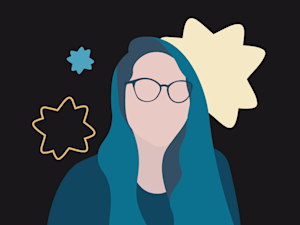
April 16, 2024
ADHD coach Jaye Lin was a gifted kid with undiagnosed ADHD. Now, she’s building communities and helping others cope with ADHD burnout.
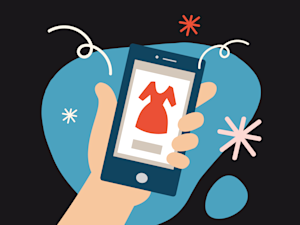
April 2, 2024
Writer Paulette Perhach had money coming in but struggled to keep it in her bank account. An ADHD diagnosis brought her struggles into perspective.
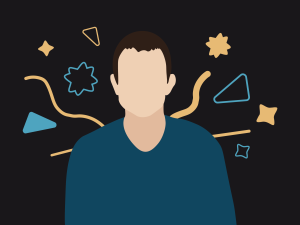
March 19, 2024
Eye to Eye founder David Flink is fighting the “just try harder” myth surrounding ADHD, dyslexia, and other learning and thinking differences.
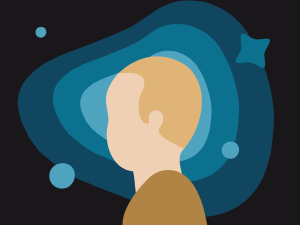
March 5, 2024
Peter Jones used to feel better saying he had a hearing problem rather than considering ADHD. Now, he knows he has ADHD and isn't afraid to say it.
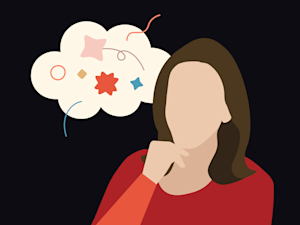
February 20, 2024
Before her ADHD diagnosis, ADHD coach Emily Weinberg thought she was just lazy. But in reality she was stuck in “analysis paralysis.”
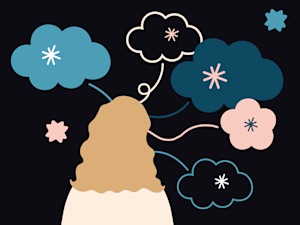
Carol Blumenstein was called an unteachable student. Now, she knows she has ADHD and dyslexia, and supports her five kids who learn differently, too.

January 23, 2024
Executive coach, actor, and former criminal defense attorney Ernest Anemone shares his ADHD story — and why he questions the term “attention deficit.”
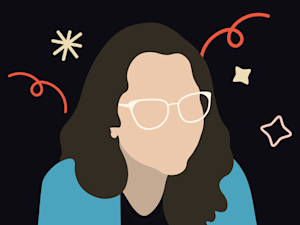
January 9, 2024
ADHD and post-traumatic stress disorder (PTSD) symptoms can look similar. And they can morph into what Hannah calls “a trauma ball of blame.”
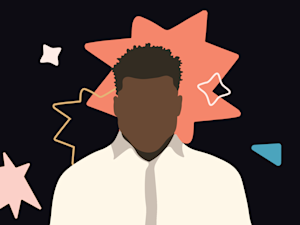
December 26, 2023
Livingston Steele was diagnosed with ADHD about a year into working at Understood.org. His experience and work have given him immense empathy for people with ADHD.
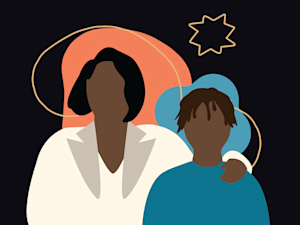
December 12, 2023
Wendy Zanders is a decluttering coach with ADHD. Find out how she got into organizing, and get a few tips for yourself.
